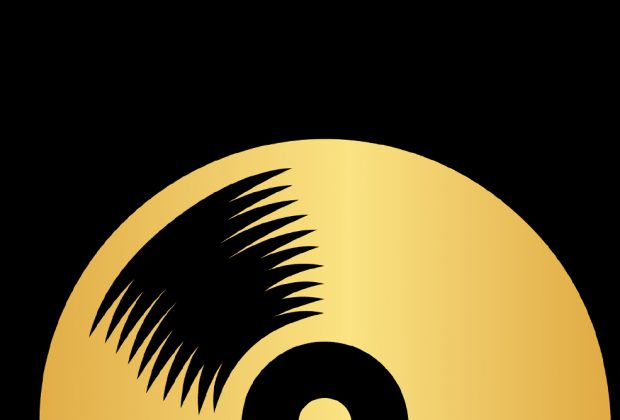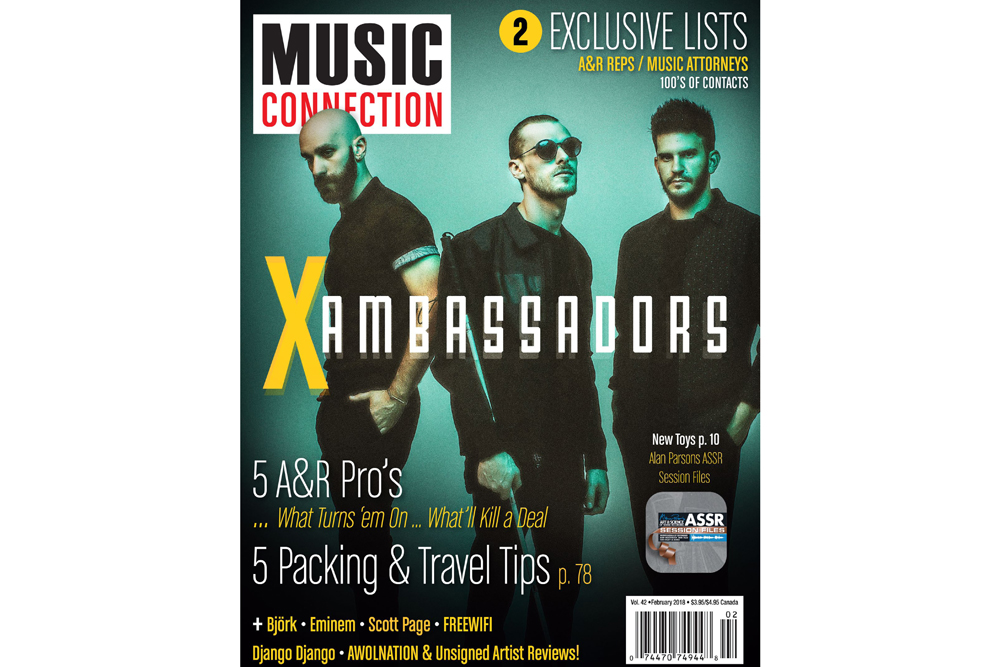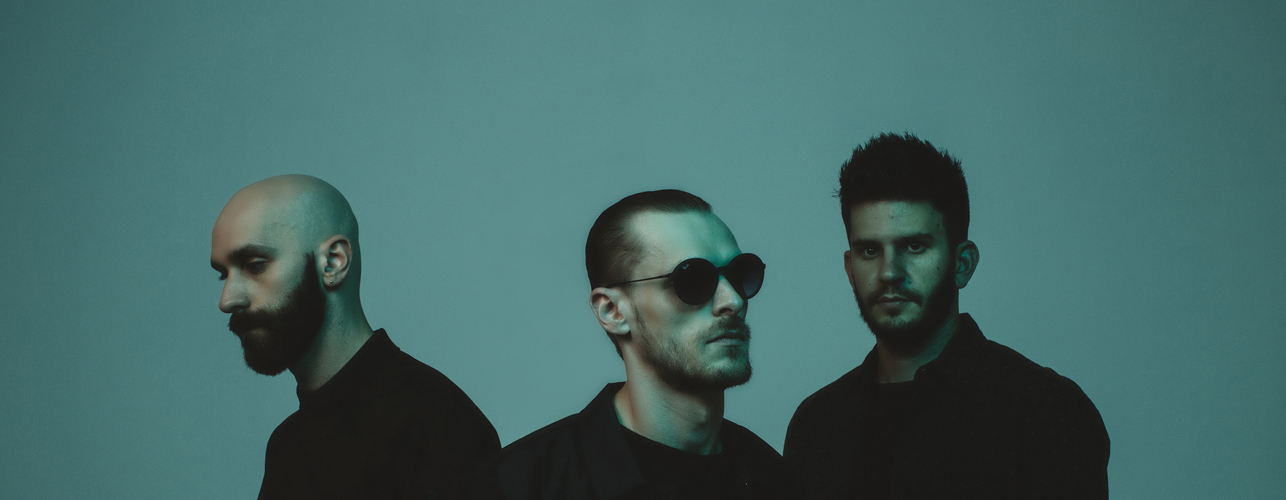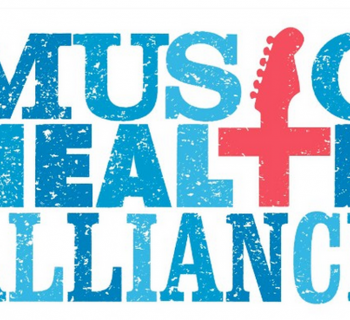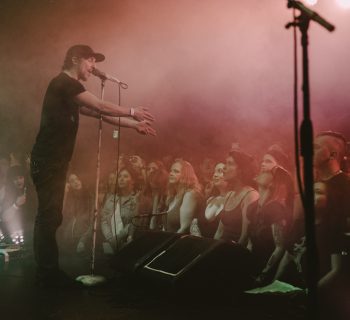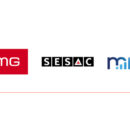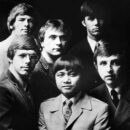IN THIS EXCLUSIVE ROUNDTABLE, Music Connection speaks candidly with A&R veterans at four major labels, and one independent, to see how they operate, choose acts and sign artists. We also included a legendary A&R executive to give some perspective on the changes Artist & Repetoire ex- ecutives have experienced due to the evolution of the music business. We’re happy to report that the pro’s we talked with see a bright future and are looking for unique artists. What each has to say is both informative and inspiring.
 Mike Daly
Mike Daly
Executive Director A&R
waltdisneystudios.com
hollywoodrecords.com
Mike Daly started his career in 2008 as a songwriter and producer for Chrysalis Music Group. He then moved into A&R for Disney in 2011, handling acts on Hollywood Records and Buena Vista (Disney’s country label). He has worked with various artists, including Imagine Dragons, Lana Del Rey, Jason Mraz, Christina Perri, Young the Giant, Grace Potter and Jimmy Barnes.
How did you get into A&R?
It’s funny… As an artist I was pretty successful and, because of that, I was offered opportunities to do other things. I became a producer and eventually got into A&R even though I wasn’t sure how to do either of those jobs. But, I wanted to learn so I just went with it.
How do you evaluate talent?
I need to feel something. Online analytics are fine, but are not a deciding factor for me. If an act has millions of streams, but don’t move me––I’m not the right guy for them. At the end of the day, it’s an emotional business.
What factors do you consider important?
Everything is important. Artists need to check all the boxes, hit all the bases and connect with as many people as possible. I’m moved by acts with an artistic vision and something to say. I especially like amazing singers with quality songs.
But it’s difficult to do everything, and artists sometimes get overwhelmed by it. Well, think about it this way… You eat an elephant one bite at a time.
Do you consider the artist’s team?
Nobody can achieve anything big alone. Having an amazing team will raise the bar. If I think a team is not functioning well, it will kill the deal.
What’s the main function of your job?
Managing expectations. Some acts may not need to be superstars, but you should target that. In the end, it’s about the artist, it’s their career.
Do you see any trends on the horizon?
I think rock will come back at some point.
How do you like to be contacted?
I prefer being contacted by people I have a relationship with. •
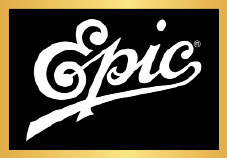 Joey Arbagey
Joey Arbagey
Executive VP Head of A&R
epicrecords.com
Joey Arbagey oversees the record-making process for all of Epic’s artists, including Fifth Harmony, Future, Travi$ Scott and Meghan Trainor. His influence has helped shape the face and flavor of R&B, dance, neo soul, hip-hop and pop music. Arbagey was instrumental in breaking many acts, including Eryka Badu, Mary J. Blige, D’Angelo, Outkast and Maxwell, among others. Wanting to play a more active role in production, Arbagey launched Arbadel Productions in 2007. Notable achievements include remixes for Mariah Carey’s album Emancipation of Mimi, remixes for Rihanna’s Grammy-winning hit, “Umbrella,” and a Grammy for Aretha Franklin’s So Damn Happy album, which he worked on side-by-side with the music legend.
How did you get into A&R?
I started at Arista Records in 2000 and discovered that I had “commercial ears.” I could pick the hits. That got me my first job in A&R.
How do you evaluate talent?
I look for something unique with a special voice and sound––and that little bit of magic. I have to feel that something is there, something that I can work with.
Does your label develop artists?
We do, but it depends on the act. Every artist is different. We might start from ground zero and try to bring them from nothing to superstars.
How important is social media?
We look at all the platforms. I want to see if [music fans] are paying attention and how they’re responding to the artist. Fan engagement is very important.
Do you consider the artist’s team?
Very much so. They’re super-important. We need to be able to work and grow together.
What is your signing process?
It could take five to six months. I need to be certain that we have the same goals and can achieve them together.
Are you looking for anything in particular?
I’m always looking for the next big thing. It’s not genre specific, it could be anything. I recently found a 16-year-old artist (AJ Mitchell) who has millions of followers online. When I see something like that, I’ll always check it out.
What would stop you from signing an act?
If they’re too aggressive or don’t care, I will back off. I want them to be excited with the opportunity they’re being offered.
What trends do you see on the horizon?
I like the fact that styles are shifting. I also think that music with a Latin flavor will become more popular.
Can artists contact you?
I prefer to deal with people I know. But, where there’s a will there’s a way. With just a little research you can get to almost anybody in the business. •
 Mollie Lehman
Mollie Lehman
Sr. Director A&R (Atlantic)
President A&R (Taste and Tone)
atlanticrecords.com
tasteandtone.com
Starting her career in 2004 as an A&R Assistant at RCA Records, Mollie Lehman proceeded to climb the industry ladder and became an A&R Scout at Velvet Hammer where she helped manage acts and scouted for a Columbia Records joint venture. From there she became A&R at Atlantic, then moved to Capitol Records as Director of A&R. In 2014, she rejoined Atlantic as Sr. Director of A&R, the position she currently holds. Over the years, she has worked with a variety of artists in various genres. Lehman is also the President of A&R at Taste and Tone, an independent singles label.
What do you look for when evaluating artists?
I pay a lot of attention to the vocals. My favorite thing is a unique voice, something different. Lyrics are also really important for me, personally.
What is the most important characteristic artists should acquire?
The right attitude… Over time that has become something I focus on. They need to have a strong passion for what they’re doing, have a great work ethic and be visionaries. They also need to be able to take a punch and keep going.
Do you develop artists?
I tend to sign acts early, so I’m 100% comfortable developing them. In fact, that’s what I do with the indie label Taste and Tone.
What is Taste and Tone about?
It’s sort of an experiment––it’s a monthly singles label. I use it as a “get to know you” type of thing. There’s low commitment on both sides. We’ll record a song and we have a small budget to play with. Depending on the release, we may hire indie PR, make a music or lyric video, do remixes…etcetera. Whatever we feel is best for that release.
Are live performances important?
I think they are. They’re a great way to connect with fans and to learn which songs are working. How the energy connects in a room with real live humans.
How do you use streaming services in your overall approach?
I use them as an A&R tool all the time; we like to watch what fans are naturally responding to. That’s one of the cool things about online is that songs can tell you things, like which is a single, and which is a hit.
What’s your signing process like?
It depends, every situation is different. Sometimes it happens very quickly in reaction to a song blowing up; sometimes it’s just hearing a vocal that I love and then falling in love with that artist and deciding to grow the project together. It’s important for everyone to have similar goals and want to be part of the team.
What trends do you see on the horizon?
I like the fact that it’s becoming a mixtape culture. Most people like different styles of music, not just one thing. I grew up with that and find it very exciting. It’s good to come back to it.
How do you like to be contacted?
At Atlantic, I prefer to be contacted by people I know and trust. At Taste and Tone, there is a submission email. •
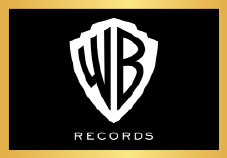 Kate Craig
Kate Craig
VP A&R
warnerbrosrecords.com
Kate Craig began her career as the Executive Assistant to the Chairman of Warner Bros. Records. She then moved into publishing as A&R at Warner Chappell Music. From there she became Sr. Director of A&R at Warner Bros. Records, and eventually VP A&R, a position that she holds today. Craig has signed and/or worked with a variety of artists, including Lukas Graham, Nico & Vinz, Bruno Mars, Brody Brown, Kate Nash and Sasha Sloan.
How is your label different?
This is my first major-label experience, so I can’t speak for anyone else, but we are very “artist first.” We still believe in developing artists and building life-long careers. There is a lot of support here. It truly feels like a family.
You’ve been A&R for both a publisher (Warner Chappell) and a record label (Warner Bros.). How are those jobs different?
In publishing my job was to set up songwriters with collaborators, and then pitch the songs for placement. At Warner Brothers, it’s more about building artist careers, hopefully long ones.
How often do you sign acts?
We sign an act when it feels right. There is no quota. It’s about quality over quantity, for sure!
What type of acts attract you? Do they need to be accomplished?
I’m attracted to whatever moves me. I’ve been a dancer my whole life. I emote and communicate through music. I feel that if a song or artist can move me, they can move the world.
How do you evaluate talent?
I go with my gut, for better or worse. Obviously, today there are analytics involved. But I try to have a balance between what’s raising its hand and what feels right.
What qualities do you look for?
I like a unique sound and moving lyrics. I love songs with a story. I love music that has something to say and hits me in the gut.
How important is originality (i.e. a “signature” sound)?
It’s “everything” to me. I’m always looking for what sets an artist apart. I want to create new lanes, break boundaries and find what’s next.
How do you measure an act’s success?
Nowadays artists can do so much for themselves, I like to see their initiative and vision. A great live show is super-important. I like to see how the crowd reacts and how their fans engage with them.
Do you develop acts (before signing them)?
Development never really ends in this business. No matter what phase the artist is in there’s always more work to do and more ways to grow. I’ve worked with artists before signing them and am always here to help what I believe in.
How important are live performances?
They’re very important. The energy of a great live show and a great performance is the difference between a talented artist and a superstar.
What about social media?
I’m more about fan engagement than numbers––after all, you can buy them. I want to see how engaged their core fans are. I would rather build die-hard fans slowly and organically, because once you have them you have them forever.
What’s your signing process?
I don’t rush things, even though things are fast paced and competitive now. Signing an act is about building a partnership––it’s a serious relationship. I want to be 100% sure I can deliver everything I promise them. It’s their livelihood, and I’ll be damned if I let them down.
What would stop you from signing an act?
If we didn’t believe and trust each other, that would kill a deal. There must be mutual trust all around.
What kind of deals do you offer (360, or other)?
Today, with the amount of power artists have, the deal-making process has to be wide open. It’s the wild, wild west out here. It depends on a lot of factors, and every deal needs to make sense for all involved.
What do you think of streaming services?
They offer a different way to find new acts. They’re a great promotional tool and can even break an artist. They can help artists be discovered and attract new fans.
What trends do you see in the future?
I see more and more cross-genre collaborations. There are no rules anymore.
How about contacting you?
I don’t mind people reaching out. I’ll listen to anything. Great music can come from anywhere. Email me links to websites and music at [email protected]. •
A&R GURU
Don Grierson
dongrierson.com
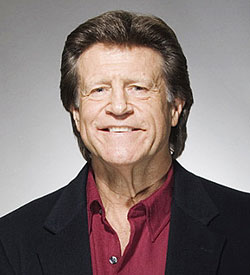 Don Grierson is a legendary, internationally acclaimed A&R executive, who has worked with some of the most notable artists in music. To many, he is considered an “A&R Guru.” Grierson was involved with The Beatles and Apple Records, receiving the only “Golden Apple Award” ever given by the band. He later became VP, A&R, for EMI America Records, and followed that as head of A&R at Capitol where he signed and guided many superstars, including Heart, Tina Turner, Joe Cocker, Steve Vai, Megadeth, Bob Seger, Duran Duran and others. Later he became head of A&R at Sony/Epic Records, signing and/or working with Celine Dion, Cheap Trick, Bad English, Cyndi Lauper, The Jacksons and Living Colour. A voting member of The Grammys, Grierson currently operates his own music consulting company, is a music supervisor for independent films and an executive producer/A&R. He is also an instructor at the Musicians Institute, and co-authored the book It All Begins With The Music.
Don Grierson is a legendary, internationally acclaimed A&R executive, who has worked with some of the most notable artists in music. To many, he is considered an “A&R Guru.” Grierson was involved with The Beatles and Apple Records, receiving the only “Golden Apple Award” ever given by the band. He later became VP, A&R, for EMI America Records, and followed that as head of A&R at Capitol where he signed and guided many superstars, including Heart, Tina Turner, Joe Cocker, Steve Vai, Megadeth, Bob Seger, Duran Duran and others. Later he became head of A&R at Sony/Epic Records, signing and/or working with Celine Dion, Cheap Trick, Bad English, Cyndi Lauper, The Jacksons and Living Colour. A voting member of The Grammys, Grierson currently operates his own music consulting company, is a music supervisor for independent films and an executive producer/A&R. He is also an instructor at the Musicians Institute, and co-authored the book It All Begins With The Music.
How has the A&R world changed?
Because of the Internet and social media, there’s a lot more information available today. When I was a label A&R executive, we had to make decisions based on limited information. Often, decisions were made based on your gut.
What’s the hardest part of being an A&R exec?
Signing any artist is a serious decision, because every signing is a risk, and some don’t pay off. Today, that could mean losing your job. You never really know how the public will respond.
For quite a while, A&R has relied heavily upon online analytics, looking for “empirical evidence” that an act would be successful. What’s your opinion on that?
There’s not one way to make a decision. But, basing it on analytics sounds a little too easy. Acquiring as much information as you can is important, but instinct should also be part of it.
Several A&R execs in our roundtable go with their instinct. That almost seems old-school today.
I’m glad to hear that. That should always be part of it, I think it’s crucial. An A&R exec needs to believe in the artist and their music. And that belief shouldn’t just come from facts they’ve researched. There’s an emotional aspect to this business that, I believe, is even more important than analytics.
Do artists need a label today?
Artists can do a lot for themselves nowadays, and achieve a lot of success. But, if they want to be a mainstream pop star they’re going to need major support and radio airplay.
How have streaming services changed the business?
They’re not good or bad. Technology changes things, but it’s important to focus on the positive. They provide a new and different way to discover music and generate a new cash flow.
Artists and managers sometimes complain that they’re not getting label support.
That’s not uncommon. If you have a lot of acts on the roster, there’s no way to handle all of them equally. Often, labels will sign and release acts whether they get support or not. That’s why there are so many “label services” companies today.
How has social media affected the business?
The beautiful thing about social media is that it can build things quickly, if it’s used properly. Cardi B is a good example of that.
How can an artist become a star?
Great artists are always honing their craft. They’re always improving and evolving. Then, often, one hit song can move them that direction.
What trends do you see in the future?
Cross-genre music is exciting. You have Adele and Ed Sheeran exploring their roots. I also think there will be many variations in all areas of the business. And, eventually, rock will come back with the right act. •

